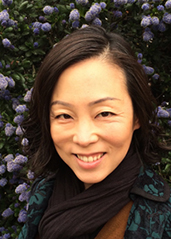Lowering the barriers to becoming a practitioner
March 9, 2020
This post is republished from Into Practice, a biweekly communication of Harvard’s Office of the Vice Provost for Advances in Learning
 Lily Song, Lecturer and Research Associate, divides her course, Community Development: History, Theory, and Imaginative Practice, into three sections. In “Unraveling,” students read theoretical texts about community development and interrogate dominant approaches that uphold race, class, and gender-based supremacies. “Revisiting” immerses students in alternative histories of community development, drawing on various liberation struggles and movements. Finally, “praxis” brings community development practitioners to present and discuss their work. The course seeks to create a peer-learning community that pushes past remedial and reformist approaches to community development in order to intervene on prevailing economic, political, social, and spatial structures and processes that lock communities in denigrating and dehumanizing terms. By showcasing and interrogating work being done in the field, it breaks down students’ barriers to entry.
Lily Song, Lecturer and Research Associate, divides her course, Community Development: History, Theory, and Imaginative Practice, into three sections. In “Unraveling,” students read theoretical texts about community development and interrogate dominant approaches that uphold race, class, and gender-based supremacies. “Revisiting” immerses students in alternative histories of community development, drawing on various liberation struggles and movements. Finally, “praxis” brings community development practitioners to present and discuss their work. The course seeks to create a peer-learning community that pushes past remedial and reformist approaches to community development in order to intervene on prevailing economic, political, social, and spatial structures and processes that lock communities in denigrating and dehumanizing terms. By showcasing and interrogating work being done in the field, it breaks down students’ barriers to entry.
The benefits: Song finds that most students are very passionate about social justice and climate risk at this moment in time, and the course allows for an abundance of discussion and problem-solving on those issues. Bringing in local practitioners provides students with a window into different career paths; Song sees students’ critical awareness, imaginations, and confidence expand as they engage with guests, delve into the ins and outs of their practice, and develop their own ideas in conversation.
The challenges: With students bringing their own experiences and passions into the classroom, conversations can get lively and emotionally intense, but much learning can happen as a result. In such rich discussions, Song sometimes struggles with how much to facilitate and continue conversation versus synthesize and distill shared understandings and lessons. “I try not to facilitate to the extent that I can, but I also need to create a common analytical framework for discussion.”
Takeaways and best practices
- Build trust before bringing in guest speakers. Song establishes community agreements and builds trust within the confines of the classroom discussion so that students are comfortable speaking and actively listening when guests are brought in later in the semester and when they present their final project.
- Support the learning of guest practitioners. For many of Song’s guest practitioners, presenting to graduate students at Harvard can be a new experience, so she works to prepare and welcome them, providing a copy of her syllabus, a summary of what the students have learned so far, detailed logistical information, and an honorarium.
- Culminate praxis with final presentations. Throughout the course of the semester, students design a community development project of their own, based on a topic of their choosing, using the unraveling, revisiting, and praxis framework. This provides students with an opportunity to put their scaffolded learning into practice.
Bottom line: For students eager to create social change, it’s easy to idealize situations and solutions. This course seeks to highlight tensions in the reality of that work, but also to build bridges between society and the academy. In so doing, students develop a more grounded understanding of how they can be practitioners who make a purposeful impact.

